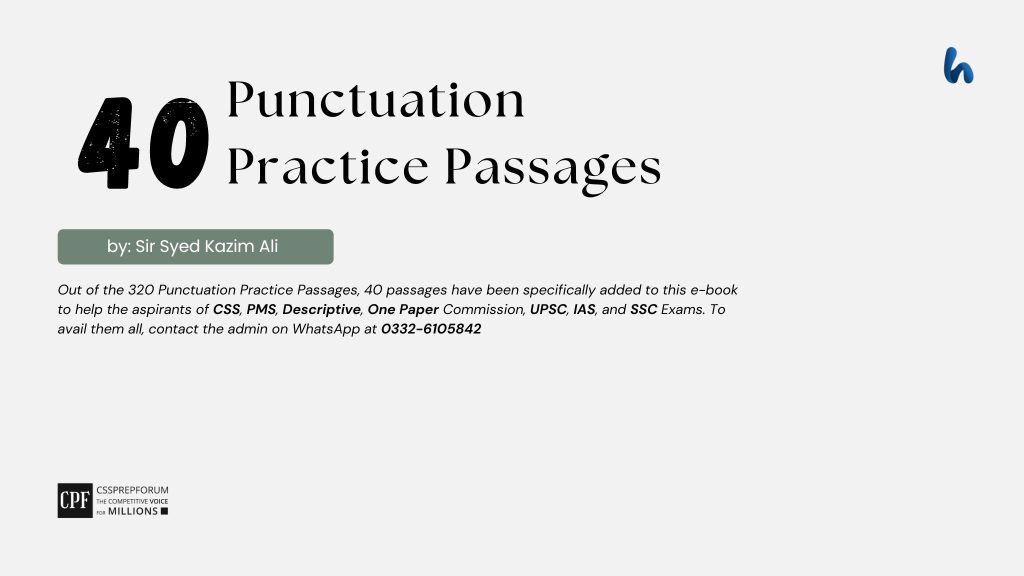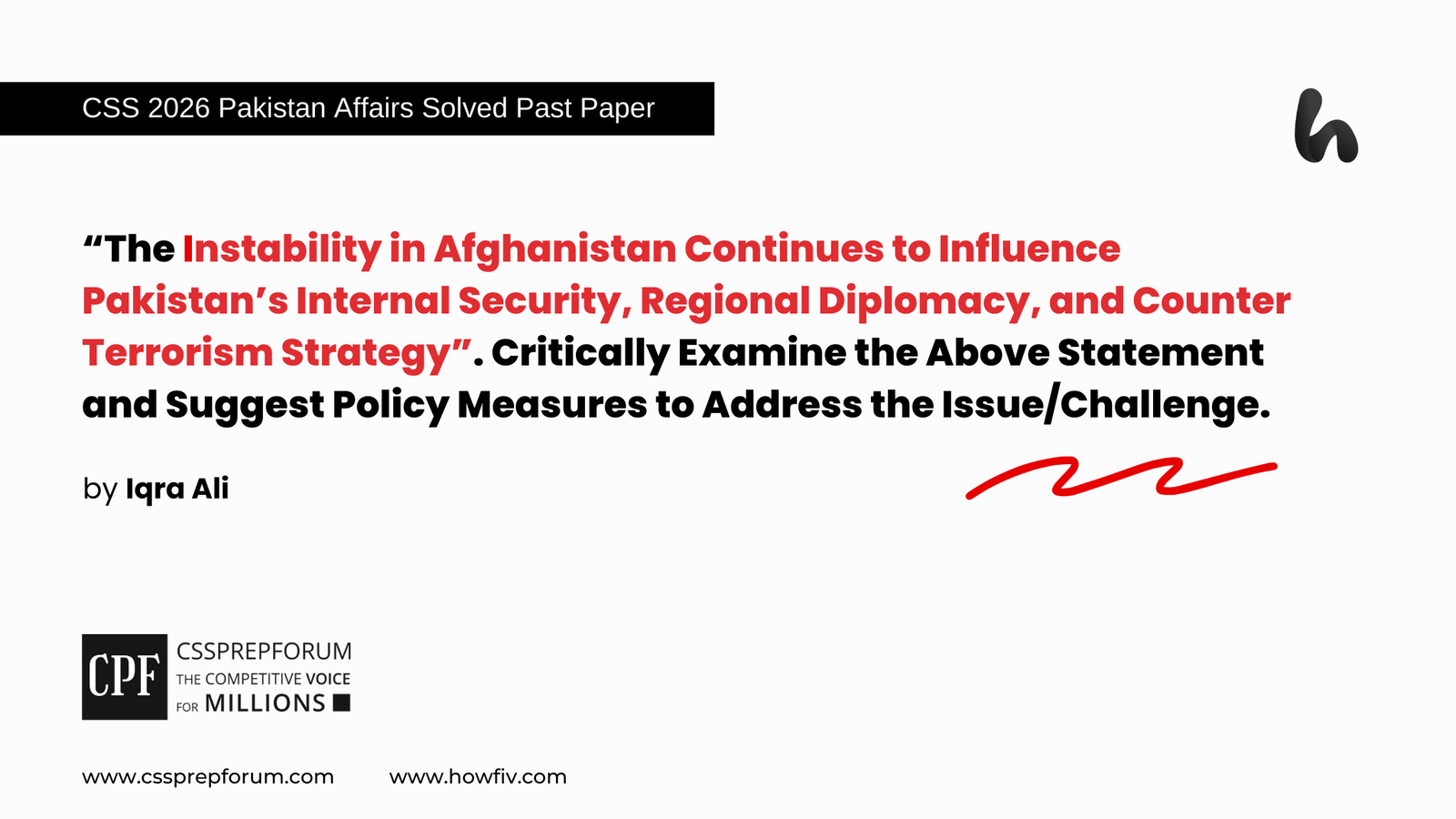Sir Badar Rameez, a Sir Syed Kazim Ali student, has attempted the Civil Judge KPK 2024 Five Paragraph Essay “The More Laws, the Less Justice“ on the given pattern, which Sir Syed Kazim Ali teaches his students. Sir Syed Kazim Ali has been Pakistan’s top English writing and CSS, PMS essay and precis coach with the highest success rate of his students. The essay is uploaded to help other judiciary and competitive aspirants learn and practice essay writing techniques and patterns to qualify for the essay paper.

The More Laws, the Less Justice
Outline
1-Introduction
Although laws are essential for maintaining order, an excessive number of laws can create confusion, inconsistencies, and bureaucratic inefficiencies that ultimately hinder justice rather than uphold it.
2-Why do more laws lead to less justice?
- Too many laws create confusion, making justice inaccessible to the common person.
- Evidence: According to the American Bar Association (2022), the U.S. federal legal code contains over 300,000 criminal provisions, making it nearly impossible for individuals to fully understand their rights and obligations.
- A vast legal system allows for loopholes that benefit the privileged while harming the disadvantaged.
- Evidence: A study by the Brennan Center for Justice (2021) found that low-income defendants are five times more likely to receive harsher sentences due to their inability to navigate complex legal frameworks compared to wealthier individuals with better legal representation.
3-If laws are meant to protect justice, doesn’t having more laws ensure a fairer society?
- Counterargument: Some argue that more laws provide better protection for individuals and ensure comprehensive justice.
- Refutation: However, excessive legislation often leads to contradictions, corruption, and legal inefficiency, undermining the very justice it seeks to uphold.
4-Conclusion

The Essay Begins Below!
“The more corrupt the state, the more numerous the laws.” – Tacitus. Laws are designed to ensure justice, protect rights, and maintain order. However, when a legal system becomes overburdened with excessive regulations, it often leads to contradictions, loopholes, and selective enforcement. Instead of safeguarding justice, an overwhelming number of laws create confusion, making it difficult for individuals—especially the disadvantaged—to navigate the legal system. While some argue that more laws ensure greater protection and fairness, in reality, legal complexity often enables corruption, empowers the privileged, and weakens the rule of law. Thus, rather than guaranteeing justice, excessive legislation erodes it, proving that more laws do not always equate to a fairer society.
Building upon this idea, an excessive number of laws makes justice inaccessible to the common person by creating a legal system that is too complex to navigate. When laws become too numerous and intricate, individuals struggle to understand their rights and responsibilities. According to the American Bar Association (2022), the U.S. federal legal code contains over 300,000 criminal provisions, making it nearly impossible for ordinary citizens to comply fully. This complexity benefits those with legal expertise while disadvantaging those without. Instead of ensuring justice, an overcomplicated legal system burdens individuals with technicalities, creating opportunities for manipulation and misinterpretation. As a result, the very institution designed to promote fairness and protect rights ends up restricting access to justice.
Expanding on this issue, a vast legal system often contains inconsistencies and loopholes that allow the wealthy and powerful to evade justice while punishing the vulnerable. Laws should protect everyone equally, but excessive legislation creates gaps that benefit those with resources to exploit them. A study by the Brennan Center for Justice (2021) found that low-income defendants are five times more likely to receive harsher sentences than wealthier individuals who can afford skilled legal representation. Consequently, instead of ensuring fairness, legal complexity increases inequality by giving the privileged an advantage. Rather than strengthening justice, an excessive number of laws enable systemic bias, making justice more about power than principles.
Despite these concerns, some argue that having more laws provides better protection for individuals and ensures a fairer society. The reasoning behind this claim is that comprehensive legislation covers various aspects of life, preventing injustices that might arise in legal gray areas. With more laws in place, supporters believe that society can address emerging social, economic, and technological issues effectively, ensuring that justice adapts to modern challenges. However, in reality, excessive legislation often leads to contradictions, corruption, and inefficiency, undermining the very justice it aims to uphold. Former U.S. Supreme Court Justice Antonin Scalia once stated, “The more laws that are written, the more lawbreakers are created.” This suggests that instead of promoting fairness, excessive laws often criminalize minor infractions, overwhelming courts and law enforcement with trivial cases while allowing serious injustices to persist.
In light of these arguments, while laws are essential for maintaining order, an overabundance of regulations leads to complexity, corruption, and reduced access to justice. Excessive laws create confusion, legal loopholes favor the privileged, and selective enforcement undermines fairness. Although some believe that more laws ensure greater protection, too many regulations often criminalize minor infractions rather than addressing real injustices. Ultimately, justice is not achieved through the sheer number of laws but through their clarity, fairness, and effectiveness. A truly just society requires well-structured, transparent, and balanced laws that uphold justice rather than obstruct it.

Click on Any to Start Reading



FAQs About Sir Syed Kazim Ali

CSS Solved Past Papers’ Essays
Looking for the last ten years of CSS and PMS Solved Essays and want to know how Sir Kazim’s students write and score the highest marks in the essays’ papers? Then, click on the CSS Solved Essays to start reading them.
CSS Solved Essays
CSS Solved General Science & Ability Past Papers
Want to read the last ten years’ General Science & Ability Solved Past Papers to learn how to attempt them and to score high? Let’s click on the link below to read them all freely. All past papers have been solved by Miss Iqra Ali & Dr Nishat Baloch, Pakistan’s top CSS GSA coach having the highest score of their students. General Science & Ability Solved Past Papers











